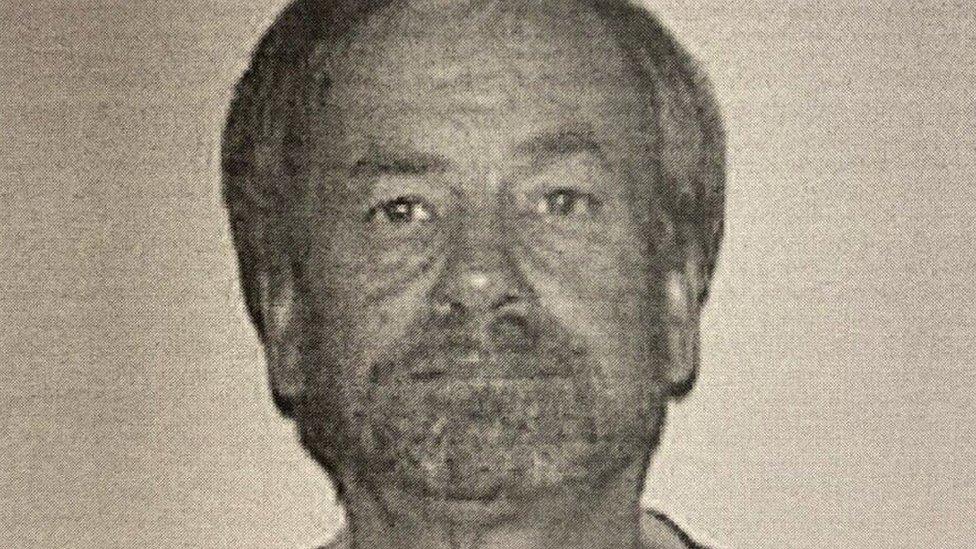US bank robber identified after decades-long hunt
- Published

Ted Conrad walked out of a Cleveland bank with over $200,000 stuffed into a paper bag
The fugitive behind one of America's most notorious bank robberies has been identified after a 52-year search, law enforcement officials have announced.
Ted Conrad was working as a teller at the Society National Bank in Cleveland, Ohio when he robbed his employer in July 1969.
He disappeared with $215,000, worth $1.7m (拢1.2m) today.
Investigators from the US Marshals Service said he subsequently lived a quiet and unassuming life.
Conrad, who died in May from lung cancer, was just 20 years old when he pulled off the heist. He reportedly took advantage of the bank's lacklustre security, walking out with the money stuffed into a brown paper bag as the branch closed on a Friday evening.
By the time other bank employees realised the money was gone two days later, Conrad had disappeared.
He sparked a manhunt that would last for more than half a century, and went on to feature on television shows like America's Most Wanted and Unsolved Mysteries.
According to the Marshal Service, Conrad had allegedly told friends of his plans to rob the bank and boasted about how easy it would be to do. He was reportedly obsessed with the 1968 Steve McQueen heist film, The Thomas Crown Affair, and watched it more than a dozen times during his preparation for the robbery.
Marshals say that after his disappearance Conrad changed his name to Thomas Randele and fled to Washington DC and Los Angeles, before eventually settling in a Boston suburb around 1000km (621 miles) away from the scene of the crime.
Investigators say he subsequently lived a quiet and unassuming life, and the New York Times reported that he had spent the past 40 years working as a golf professional and at a used-car dealership.
The case remained cold for decades before investigators, alerted by the appearance of Randele's obituary in a newspaper, were able to match papers he had filed during the 1960s with documents "Randele" had completed more recently. Ironically, this included papers from Randele's bankruptcy case in a Boston court in 2014.
Marshal Peter Elliott was one of the lead investigators on the case. He inherited it from his father John, who had been obsessed with finding out what became of the daring thief.
"My father never stopped searching for Conrad and always wanted closure up until his death in 2020," Mr Elliott said.
"I hope my father is resting a little easier today knowing his investigation and his United States Marshals Service brought closure to this decades-long mystery."
Related topics
- Published29 July 2015
- Published16 December 2015
- Published24 December 2019